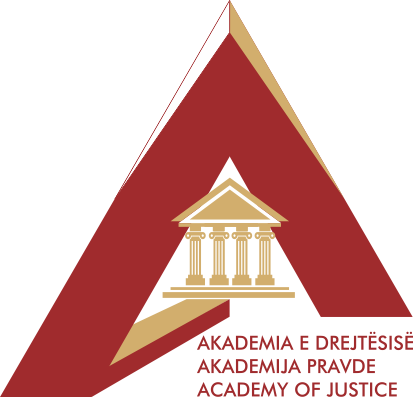
 ACADEMYOF JUSTICE
ACADEMYOF JUSTICE
- HOME
- ABOUT US
- STRUCTURE
- TRAINING PROGRAMS
- PUBLICATIONS
- NEWS AND ACTIVITIES
- VACANCIES AND NOTICES
- GALLERY
- KJI
On 12 December 2019, the Academy of Justice within its CTP organized a training entitled "The Right to private life, family life, residence and correspondence, to marry and create a family and the equality of Spouses - Article 8 of the ECHR". Purpose of this training was to extend the judges knowledge on proper application of the provisions of Article 8 - ECHR.
First part of the training addressed the notion and the legal nature of private life, and meaning and legal nature of the family life. Second part of the training covered the privacy, correspondence, residence-interception and data collection and interference by the public authority in the exercise of this right to the extent provided by law.
It was highlighted that a wider interpretation of the Court pertaining to the definition of private life - under Article 8 of the Convention includes elements like gender identification, name, sexual orientation and sexual life. The article also protects the right to identity and personal development and the right to establish and develop relationships with other persons and with the outside world, including activities of a professional or business nature that may be created in a public context. Private law is closely linked to the notion of personal integrity. Any interference with a person's physical integrity must be provided by law and requires approval from that person.
It was also emphasized that the concept of family life has developed gradually over the life of the Convention and continues to be developed taking into account social and legal changes. The court, as with the concept of private life, maintains the same balanced attitude in interpreting family life given the diversity of modern family problems, divorce issues, and upgrades in medicine. According to the word order in this article, family life is positioned directly in the private sphere where it has the right to act without arbitrary state interference.
Addressing the intervention "in accordance with the law" it was stated that: "For an intervention to be justified it must be in accordance with the law, which is a measure of protection against arbitrary interference." In relation with the freedom of appraisal it was emphasized that it is clear that the Court grants the State discretion when deciding whether an interference with a right under Article 8 is justified under paragraph 2 of this provision. The discretion given to the competent national authorities will vary according to the circumstances, the subject matter and its background. It has already identified that factors to be considered in determining the scope of the discretion in this area include the existence of common grounds between the laws of the Contracting States; the sensitivity of the area to be considered and the variability in customs, policies and practices among contracting states.
This training used methods of partial theoretical explanation, based on cases from the ECtHR case law, followed by interactive discussions, training material handouts provided by the trainers, and elaboration and clarification of the provisions of Article 8 – ECHR and other applicable legislation that cover this area.
Beneficiaries of this training were judges and prosecutors of all instance in the Republic of Kosovo and professional associates.
12-12-2019